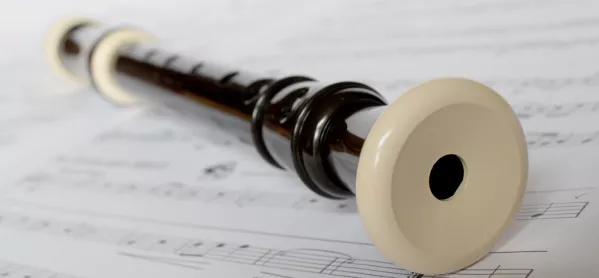A survey has found a significant minority of primary teachers say music is “non-existent” or “practically non-existent” in their schools, reports Emma Seith.
The research - carried out by the Royal Conservatoire of Scotland (RCS) - also found that nearly one in 10 of the teachers surveyed responded “never” when asked how regularly children in their class took part in music lessons, although the largest proportion (33 per cent) said music lessons took part weekly.
Meanwhile, only 3 per cent of primary teachers said their schools had a “structured and coherent programme” of music education.
Respondents to the survey of 437 primary teachers most commonly reported that music education varied from class to class depending on how comfortable each teacher was (60 per cent), and that music was mainly covered through preparation for assemblies and school shows (55 per cent).
Only 6 per cent of respondents said that music lessons involved children playing a variety of instruments.
Dr Lio Moscardini, one of the report’s authors and a lecturer in learning and teaching at RCS, said: “Probably what concerned me the most was that 15 per cent of all respondents indicated that music education was either ‘non-existent’ or ‘practically non-existent’ in their schools, with 9 per cent of the respondents in the study reporting that children in their primary schools do not experience any music lessons at all.
“That’s a lot of children not receiving any music education. The evidence from the data is that this was three times more likely to be the case in SIMD [Scottish Index of Multiple Deprivation] 1 and 2 areas compared to affluent areas.”
Virtually all the respondents - 98 per cent - considered music education in primary to be important, but most (73 per cent) said their initial teacher education had not prepared them for teaching music, while more than two-thirds said they had not engaged in any professional learning activity relating to music education.
Around three-quarters of the staff surveyed (73 per cent) felt that music should be taught by someone other than the usual classroom teacher.
However, the report - published this month and entitled Music Education in the Primary Classroom in Scotland - pointed out that “this proposition is problematic on a number of fronts” not least because “the reality is that there are only 49 primary-based music specialists in Scotland“. Dr Moscardini argued that “a more pragmatic solution is to focus on how we might best support primary teachers in developing their capacity to teach music”.
He added: “Teachers already have the pedagogical knowledge for doing this, what many lack is the content specific knowledge. This could be developed through a more collaborative approach where music organisations work to support teachers in their classroom practice in ways that connect with what teachers already know and are doing and which supports a more sustainable model.”
Ultimately, the report calls for a national campaign to raise the status of music in primary schools and for every primary to have a designated “music coordinator” who is drawn from the teaching staff and who supports colleagues to teach “classroom music”.
It also calls for an audit of all career-long professional learning opportunities in primary music education to be carried out.




